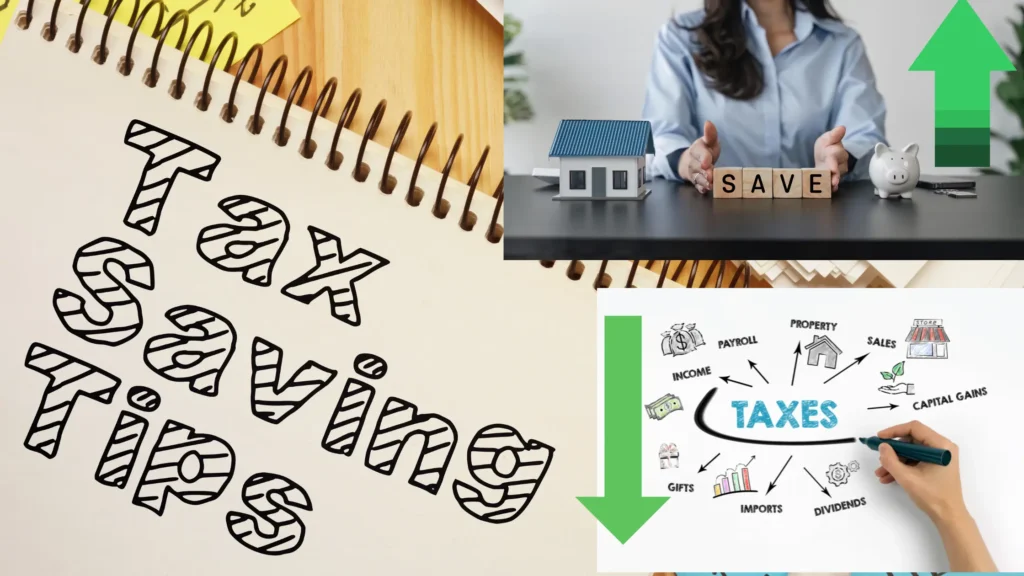Introduction:
In this post we will discuss simple and easy ways to reduce taxable income and learn how to pay less tax. We all know that managing finances can be daunting, especially when it comes to effective tax planning. However, in Australia, understanding the intricacies of the tax system can significantly impact your financial situation by helping you reduce taxable income and pay less tax, claim more deductions, and ultimately improve your overall financial health.
A well-crafted tax plan can substantially impact your financial situation, whether you have substantial assets, are a small business owner, or are a salaried employee. This post delves into several subjects, including comprehending the various kinds of taxes, tax benefits you might qualify for. Furthermore, it offers valuable advice on income structuring, maintaining precise records, and optimizing your tax refund.
Table of Contents
Understanding Australian Taxes
Let’s start by understanding the fundamental principles of taxation in Australia before we delve into tax-saving methods. The ATO ensures everyone pays their fair share of taxes. Here are the key things you need to know:
Income Tax
Earning money through different sources, such as employment salary, investment returns, or business profits, requires paying income tax, which is a mandatory levy. The tax rate is directly proportional to your total earnings, so the greater your income, the higher the tax rate. It is similar to climbing up a ladder, where the tax amount increases as you move up the income scale.
Goods and Services Tax (GST)
When you purchase goods or services such as clothing, food, or car repairs, you might be charged a Goods and Services Tax (GST) tax. This tax is set at a rate of 10%, which means that for every $10 you spend, $1 goes to the government as GST. It’s essential to remember that not all goods and services are subject to GST, and the tax rate may vary depending on the country or region where you live.
Capital Gains Tax (CGT):
Selling assets like shares or property can attract tax on any profit you make. The amount of tax you owe will depend on various factors, like the asset type and the duration you held it before selling it. However, specific exemptions and discounts are available for certain asset types that can help you reduce the tax amount you owe. It’s essential to understand these rules and exceptions to calculate the tax payable accurately and avoid any penalties or fines.
Fringe Benefits Tax (FBT)
If you are lucky, your job might offer additional benefits such as a company car or free housing. According to government regulations, these benefits are taxable. As a result, you will need to pay taxes on the value of these benefits just like you would with any other income. Fortunately, your employer is responsible for calculating and paying this tax on your behalf, so you don’t have to worry about it.
How to pay less tax? simple ways to reduce taxable income
Let’s explore some simple ways to reduce your taxes and increase your savings. We all like to keep more money in our pockets, right? So, let’s get started by discussing some effective strategies.
Boost Your Superannuation
Investing in your superannuation can make planning for your future retirement easier. Contributing to your super fund not only ensures you have savings for your retirement but also provides you with tax benefits. Increasing your super contributions can help reduce the tax you pay by lowering your taxable income. Additionally, the funds in your superannuation account are taxed lower than your regular income, making it easier to grow your retirement savings. Adding extra funds to your super account every month can help you save money on taxes and increase your retirement savings.
Claim Work Expenses
Spend money on items or services that are necessary for your job or related to your work, such as uniforms or travel expenses. You may have the opportunity to claim them as tax deductions. This means that you can decrease the tax amount you owe on your income, potentially resulting in significant savings. It’s crucial to bear in mind that not all expenses related to work can be claimed as tax deductions. Therefore, it’s essential to conduct thorough research and comprehend the specific rules and regulations that are applicable to your particular situation.
Additionally, you need to keep accurate records and receipts of all the expenses you want to claim, as this will be required to support your claim if the tax office requests proof. By taking advantage of work-related tax deductions, you can potentially save a good money and make the most of your income.
Invest in Property
You would be making a wise decision if you Invest in real estate to lower your tax burden. This is lucrative investment as well as a great tool for tax planning. If you own a rental property and its expenses exceed the rental income, you can claim the loss as a deduction from your other earnings.
Timing of Your Investments is crucial for tax saving
It’s crucial to keep track of when you buy and sell investments such as stocks and real estate. Timing your investments correctly can lower the taxes you need to pay on any profits you make. Follow your investment calender and keep track when to make a decision.
Government Rebates and tax offsets
The government offers various rebates and offsets to help people with their tax bills. For example, if you have private health insurance, you might be eligible for a rebate that reduces the amount of tax you owe. There are vairous tax offsets and rebates that you can benefit from depending on your circumstances and taxable income. For example you may be eligible to claim Seniors and pensioners tax offset or Low or middle income tax offset
Salary Sacrifice or salary packaging
Employees have the option to participate in salary packaging, which is also referred to as salary sacrificing. This program enables them to receive specific benefits or cover expenses using income that is taxed before it is received. It allows individuals to allocate a portion of their salary to certain items or services, such as additional superannuation contributions, motor vehicle expenses, or meal and entertainment expenses.
By sacrificing a portion of their income prior to tax calculation, employees can decrease their taxable income, which can lead to reduced tax liabilities and potentially increase their take-home pay. Salary packaging is a flexible and tax-efficient way for employees to optimize their benefits and overall financial situation.
Make Donations and Charity
Contributing to registered charities benefits not only the causes they support but also provides tax advantages. Donations to such charities are typically tax-deductible, allowing you to deduct them on your tax return and lower your taxable income. For Australian taxpayers, making charitable donations is a dual advantage, aiding the community and reducing their tax liability.
Conclusion:
Understanding the tax system and utilizing available opportunities can simplify tax management. This can help you reduce your tax bill and improve your financial situation. Several straightforward strategies, including boosting your super, claiming work expenses, and timing your investments, can help you pay less tax and keep more of your hard-earned money. Begin saving right away by taking control of your finances!
Remember to follow Australian tax laws when implementing strategies to reduce your tax liability. Consult with a tax professional or financial advisor for personalized advice.








1 thought on “Tax planning: simple and easy ways to reduce taxable income and learn how to pay less tax”